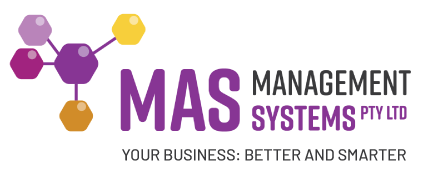The Lab Manager’s Circus Act: Juggling Regulations and Resources
Optimising lab performance and efficiency is difficult.

Picture this: You’re a lab manager, juggling accreditation demands like a circus performer with too many flaming torches. NATA and the regulatory bodies keep tossing more hoops for you to jump through, and you’re balancing on a tightrope made of red tape. Just as you think you’ve mastered the act, a new regulation swoops in like a mischievous clown, throwing pies of paperwork in your face.
Meanwhile, your lab staff are like a troupe of acrobats trying to perform without a net. Budget cuts mean you’re all squeezing into a tiny clown car of resources, and the only thing you’re multiplying faster than bacteria in a Petri dish are the hours you need in a day. Burnout? It’s the uninvited guest at your office party, crashing on your couch and eating all your snacks.
This is where systems can be your friend. Systems are like your “autopilot” – the thing that tells you what routines exist in the lab and how to make decisions. They are the basis of ISO lab standards such as ISO/IEC 17025 and ISO 15189.
Sometimes, the troupe of acrobats can’t quite land the trick. That’s when you turn to the hidden talent standing stage left! Enter the Quality Management Systems Consultant, your very own superhero in a lab coat. With a flick of their clipboard and a swirl of their pen, they streamline your processes, train your team to perfection, and make those pesky regulations disappear like magic. Suddenly, your circus of chaos transforms into a well-oiled machine, and you finally have time to laugh at the absurdity of it all.
So what are those things lab managers and their staff are juggling? In our previous Lab Manager Conservations series, we asked people just like you about the challenges they face in running and managing a lab.
We thought it was time for a refresh, and over the past couple of months, we’ve been having more conversations to check in on what’s currently creating frowns, and smiles, in the world of Lab Managers.
The most dangerous flaming torches of a lab manager’s act
Regulatory Compliance
 Staying up-to-date with evolving regulations and requirements and ensuring compliance can be overwhelming without dedicated expertise. It can see lab staff working hours beyond their already busy day at the bench, reading up on new requirements, standards and regulations.
Staying up-to-date with evolving regulations and requirements and ensuring compliance can be overwhelming without dedicated expertise. It can see lab staff working hours beyond their already busy day at the bench, reading up on new requirements, standards and regulations.
Laboratory managers face significant challenges due to the increasing demands from accreditation bodies and regulators. Issues to do with increased demonstration of traceability, validation of methods, IT and other systems, and the demonstration of ongoing competence of staff have been a significant headache for many Lab Managers.
The pressure to maintain high standards can be overwhelming, particularly for labs with limited resources. This regulatory burden often diverts attention from core scientific activities, impacting overall productivity and efficiency.
One Lab Manager, Ben, told us that he felt like he had to almost be a lawyer to stay aware of changes in regulations, understand what these changes meant to his lab, and implement updates to lab processes to meet these changes. The changes come from areas such as occupational health and safety, environmental management, employment and workplace relations, and new technical demands of method performance. All he really wants to do is run a good lab that produces reliable results.
Without the right expertise, navigating these complexities can lead to costly errors and potential non-compliance, further straining the lab’s operations and reputation. Falling to the ground without a net to save you can create a messy outcome.
Resource Constraints
Another major challenge is resource constraints within laboratories. Many labs operate with tight budgets and limited staff, making it difficult to dedicate sufficient time to develop, implement, and maintain effective quality management systems.
This constraint hampers the ability to implement best practices, train staff adequately, and ensure continuous improvement. The dual responsibility of managing administrative tasks and scientific work often leads to burnout among laboratory managers and staff.
Another Lab Manager we spoke to explained that the role of a QMS consultant becomes invaluable. Consultants bring specialized knowledge, streamline processes, and provide targeted training, enabling lab managers to focus on their primary responsibilities and enhance overall operational efficiency.
Operational Efficiency
 Louise, a manager at a commercial lab, told us:
Louise, a manager at a commercial lab, told us:
“Finding the balance between administrative responsibilities with lab work has sometimes left me feeling burned out. I know it has affected my productivity. I see my staff also feeling overwhelmed with everything they have to do and remember. They complain about the extra record keeping and systems that NATA is making us do.”
Mick gave a different perspective on the same issue. He said that he can see how IT and AI can potentially help with the problem of inefficiencies in his lab’s processes, but he and his staff simply don’t have the time or skills to get into these possible solutions.
In these cases, a focus on streamlining processes, optimising resource allocation, and continuously improving operational protocols to maintain high efficiency and meet accreditation requirements are clearly the remedies. It’s like getting the right acrobat moving across the tightrope safely and successfully in half the amount of time it used to take.
But getting started on these initiatives is hard, especially when your mind is consumed with just getting through the day-to-day “stuff”.
What to do?
There are a few things you can do to get started. But you’ll probably need some outside help to make the most of these projects.
System Reviews and Improvements
 You can easily do a system review yourself. After all, that’s part of the function of an internal audit. When you’re in the system, though, it can be difficult to pinpoint where things are not fully optimised and importantly, how to improve the current state of existence.
You can easily do a system review yourself. After all, that’s part of the function of an internal audit. When you’re in the system, though, it can be difficult to pinpoint where things are not fully optimised and importantly, how to improve the current state of existence.
Consultants can evaluate existing systems, identify gaps, diagnose problems and recommend improvements, ensuring that all processes meet accreditation standards. At MAS Management Systems, we pride ourselves on our knowledge and application of process improvement techniques, beyond just addressing the “low-hanging fruit”.
Consultants mustn’t just tell you what to do and promptly leave you to get on with it, like a FIFO worker. We collaboratively work with our clients to identify which systems and areas of the lab are inefficient, ineffective, and resemble a patchwork of processes that don’t work well. Then we help to develop solutions that work for the long term.
Procedure Development
 With the advent of generative AI, writing documents has never been easier! It’s like the magician in the circus act that proves around while the other acts perform in the centre.
With the advent of generative AI, writing documents has never been easier! It’s like the magician in the circus act that proves around while the other acts perform in the centre.
However, there is still great skill in being able to write clear, concise procedures that are easy to follow and compliant with regulatory requirements. That’s often a key strength of people in your Quality team or a QMS consultant.
If you want to upskill your staff to be able to write procedures and reports and develop forms well, then our From Dot Points to Documents Training Course can be just what you need. Managers and lab staff who have attended our course have been delighted with the immediate improvements to the skills of people in the lab. Lab Managers have told us it has led to less revision to first drafts of documents, and staff with a better understanding of how to communicate with colleagues, managers and customers.
Training and Mentorship
Training is a terrific way to give your staff the skills they need to overcome those challenges our Lab Managers continue to battle. It’s something that our Lab Managers all identified as critical to success.
There are lots of resources inside the lab, from suppliers and online to fill the skills and knowledge gaps. The key is to develop targeted training programs for staff and like any system, roll them out.
Check-in on your staff if you have given them some resources to watch or read and make them accountable for this. Set up regular sessions to mentor staff. It’s how you can do “more with less”.
Sometimes, there is a lack of knowledge when it comes to quality management. That’s OK- most people “fall” into a quality role with little training to help them do this job well. That’s where external resources can help. By providing targeted training and ongoing mentorship, consultants help staff understand and effectively implement quality management practices.
Focus on Core Activities
Sometimes you just can’t do everything. Reaching that conclusion is hard, especially when you’re a small business. But relying on your own wits and the mere 24 hours in a day at your disposal can really make things difficult.
With a consultant handling QMS-related tasks, lab managers can focus on their primary responsibilities, enhancing overall operational efficiency.
At MAS Management Systems, we provide these services at a lower cost than many people think! We help you set up your QMS systems to optimise what you and your staff can achieve in operating your QMS “in-house” while you do your core activities of testing and calibration, and identify those things that are the virtual straw that breaks the camel’s back.
Typical services we provide to clients include:
- In-house quality system management so you can just leave it to us
- Internal audits with a program that works
- Meaningful management reviews
- NATA follow-up audits and submissions
- Non-conformance investigation and follow-up
Just contact us for an obligation-free discussion to explore ways we can help alleviate your load.
The Final Word
 We know Accreditation Bodies like NATA require labs to adhere to stringent standards. We also know that labs are trying to do less with more. This means that meeting those requirements can divert focus from core laboratory functions, affecting overall productivity and efficiency. And they are the things that matter most to lab managers.
We know Accreditation Bodies like NATA require labs to adhere to stringent standards. We also know that labs are trying to do less with more. This means that meeting those requirements can divert focus from core laboratory functions, affecting overall productivity and efficiency. And they are the things that matter most to lab managers.
Incorporating an external expert into your lab’s operations not only ensures compliance but also fosters a culture of continuous improvement. By leveraging the expertise of a consultant, you can optimise your lab and navigate the complexities of NATA accreditation with confidence and ease.
In the end, we all want to be happy, and healthy and find ways to work better and smarter.
What are you waiting for?
Contact us at info@masmanagementsystems.com.au, or phone Maree at 0411 540 709.
Remember, you don’t have to do this alone!

